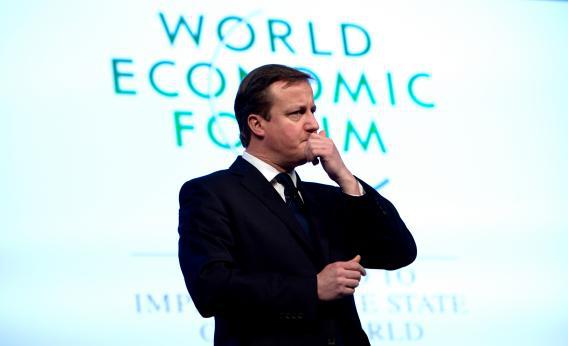Another bad Gross Domestic Product number from the United Kingdom this morning as Real GDP fell slightly in the fourth quarter, indicating the beginnings of a third dip in the British economy’s dismal post-crisis performance.
Yet the interesting thing about the U.K. economy under the Cameron/Clegg coalition is that while you’d hardly say the labor market is amazing, it’s not nearly the disaster that the GDP numbers would suggest. In the United States, total economic output is above its pre-crisis peak, but total employment is still slightly below the peak because output per worker has increased. In the United Kingdom, the unemployment rate is slightly better than in America even though GDP is stuck well below its pre-crisis level and actually shrinking. Productivity, in other words, has collapsed. Izabella Kaminska runs down some theories as to why this is, but a lot of them strike me as implausibly general. Considerations about mismeasurement of the welfare impact of digital goods, for example, shouldn’t produce a U.K.-only statistical trend. What’s needed is an explanation of why productivity would fall in the United Kingdom but not in Canada or the U.S.
Part of the story is declining output of North Sea oil and gas. Part of the story has to do with the U.K. economy’s unusual level of financialization. Part of the story has to do with Cameron/Clegg’s unwise fiscal austerity policies. But I don’t think those considerations really add up as a full account of what’s happening.
